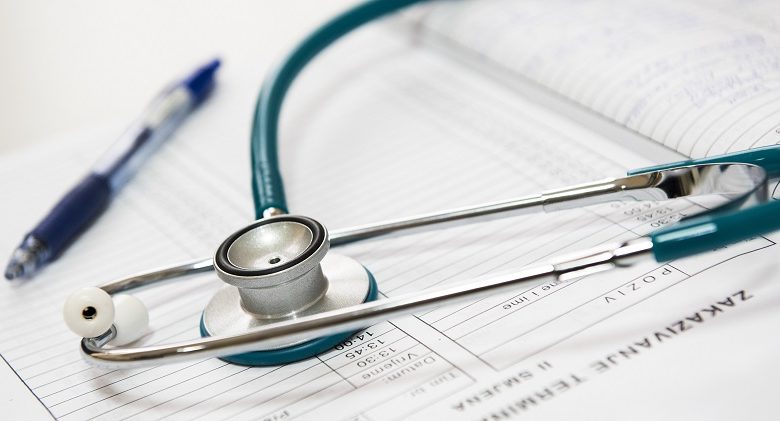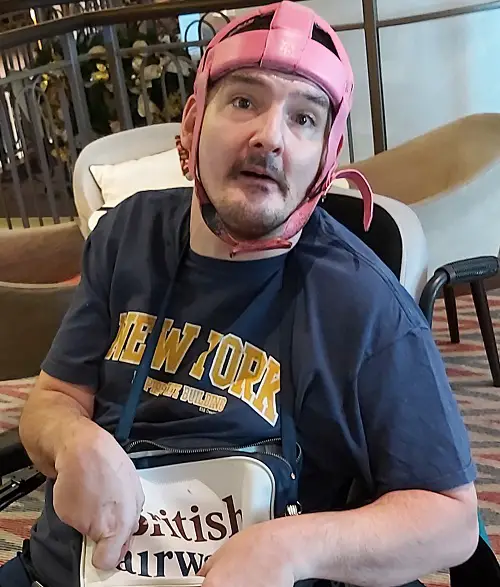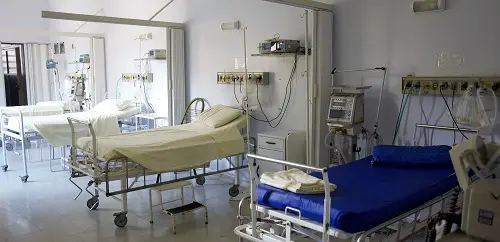
Hospitals and me: how to have the best possible experience if you’re disabled
Simon Stevens, who has cerebral palsy and a range of other impairments, has had his fair share of negative experiences with hospitals. But, as he explains here, there are things he and other disabled people, like you, can do to help have a better visit.
I generally hate hospitals, and not for the reasons people may expect. My impairments mean that I have been in and out of hospital my whole life. But it’s not my frequency of visits that is the issue – it’s the annoying setbacks during them.
Here are some of the things I have learnt that can help to make your visit or stay less frustrating and more comfortable.


Ambulances
The first issue I have is with the ambulance service. Technically, it is unlawful for paramedics to take wheelchairs in the ambulance and into the hospital. But not having a wheelchair means being bedbound and using incontinence pads, which can be distressing.
I have found that if you use a little charm and explain the negative implications of not having my chair, the paramedics will allow them.
It probably helps that I know a lot about paramedics as I ‘role-played’ an unwell person with student paramedics at Coventry University. It was a really interesting experience.
Trolleys and beds
I also struggle with hospital trolleys and beds. For some reason, I keep sliding down them! I have a good hospital bed at home without full rails. It also has a good foot-board, which means I can push myself up.
I learnt on my last visit that putting rolled-up towels at the foot of the bed makes it easier to adjust my position.


Changing wards
The biggest problem with changing wards is information management. In a big hospital, you can be transferred to a number of different wards within the space of just two days.
Every shift on each ward has a completely unique culture and if you have complex needs you will probably have to explain your needs again and again.
This is where my ‘Inclusion Passport’ really helps. I have created a laminated booklet that tells the hospital staff absolutely everything they need to know about me, including what I like for breakfast.
I have also stated that one of my allergies is ‘patronising people’, which makes usually gets a laugh and makes me seem approachable.
I plan to produce a template of the passport so that others can use it.
Politeness and patience
Politeness will help you to get through almost any experience. In hospital (and, indeed, elsewhere), you will meet many people who won’t understand your needs. So you will need to have the confidence to ask for things. Doing this politely – for example, ‘Please can you do me a favour…’’ – will get you a long way.
As an example, a few months ago, I got the manager of Planet Hollywood in London to take my socks off for me after the London Pride parade! Charm really will get you anywhere!
Patience is also important. After you press the call button, it can take up to an hour for someone to come to help you.
Never expect assistance with toileting when you need it. It’s better to be put in a pad or to bring your nappies/pull-ups. It may not be nice, but it’s a reality. Although it might be hard to accept, it’ll save you spending time desperate for the loo and unable to go.
Never get angry in hospitals. It just means a label will be placed on you, which will make your experience harder. So wait until you get home and are safe before making a complaint.
As a ‘frequent flyer’ to my local hospital, I am fortunate and proud to have an ally who is able and willing to have open and honest chats with me. If you can make a ‘friend’ or confidant, it’ll help.


Personal assistants
Paid personal assistants or carers can help you with social tasks, such as bringing in clothes, books etc. But they are not insured to do personal tasks, including toileting.
Despite that, nurses will sometimes assume that your personal assistant or carer will do these tasks, so be clear with them.
Also, remember that visiting hours do not apply to them as they would to a family member.
Young doctors
I find that younger the doctors are more understanding as they have been better trained. I helped train medical students at Warwick University, so I know what they’re being taught. We’re not quite where we should be, but disability awareness training is getting better.
Share your concerns to improve inclusion
Overall, I think hospitals are becoming more aware of the needs of patients and disabled people. But it can still be been a bumpy ride.
I have worked hard to build a good relationship with the staff at my local hospital, which means they acknowledge my concerns. I recommend anyone does the same. It could be a positive sign for the future.
By Simon Stevens
You can read more about Simon Stevens and the work his does as a disability activist by visiting his website.
More on Disability Horizons…
Great article Simon, I am a frequent hospital user and when I’m in I often think that I’m going to do a “this is me and everything you need to know about me” booklet but then I’m discharged and forget about it until I’m back in there. I would be really interested to see what topics you include because I can imagine if it’s too detailed and long nobody will read it but if it’s too short it won’t be of any use.
I never knew PAs weren’t insured to assist you in the hospital, mine come in everyday as usual and carry out all my care, just because it’s easier for me.
Hope you are well and at home at the minute.